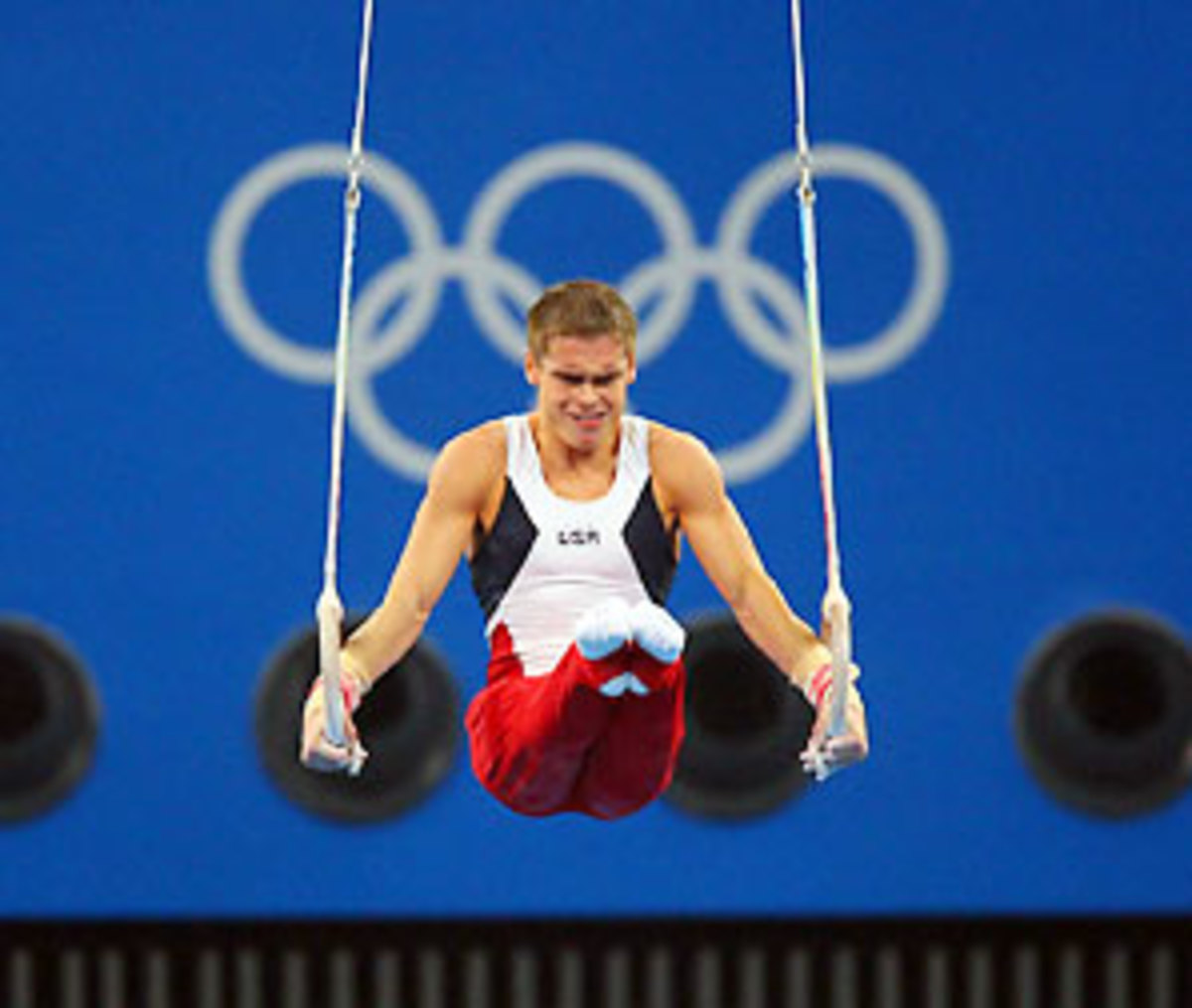U.S. men's gym qualifies for finals with solid all-around performance
The U.S. won Subdivision 1 with a score of 365.20, a total that eventually wound up trailing medal favorites China (373.60), Japan (369.55) and Russia (366.225), all of whom competed in Subdivision 2. But with the Americans standing fourth and only four countries remaining to compete in the last subdivision, the worst they can finish is eighth overall. Eight teams advance to the finals. All scores revert to zero for the finals, so the Americans will start with a clean slate.
The U.S. men did all the things they needed to do to advance. No one fell off any of the six apparatuses, a consistency they will need to duplicate in the finals. Horton was solid from start to finish, scoring higher than any of the 31 gymnasts in the first subdivision. Artemev put up a giant 15.25 on the pommel horse, the U.S. team's weakest event. Finally Horton (15.575), Justin Spring (15.375) and Joey Hagerty (15.40) all put big numbers in the high bars -- considered to be a potentially weak link in the absence of Paul Hamm -- by packing their routines with high-risk release moves.Those three made the high bar look like a circus act, barely hanging on by their fingertips after high, twisting somersaults over the bar.
"Justin and I got together afterward and were just laughing, telling each other 'Can you believe we stayed on the bar?' " said Horton. "It came from being so amped up for the preliminaries and swinging too fast."
"I caught the bar once with one hand," said Spring. "I told myself not to be tight today, to go for it, and maybe I was a little too relaxed. But no way I was going to fall off the bars in the Olympic Games."
As for Artemev, who was the last-minute replacement for the injured Morgan Hamm, he went from expecting to watch the Games on television to being one of the two U.S. men to compete in all six events (Horton was the other). His father and coach, Vladimir, a former Olympic gymnast for the Soviet Union, was back at their Morrison, Colo., home when Sasha got word he was stepping in, fulfilling his father's dream. But Vladimir has no plans to fly over to see his son compete in the Games. "He'd rather watch on television anyway," Sasha says. "He gets too nervous in person."
Having never even practiced on the equipment in Beijing, Artemev started out shakily on the rings, but he soon found his stride, closing the meet with a high-kicking pommel horse routine that brought a roar from the crowd and showed his teammates how he'd won a bronze medal in that event at the 2006 world championships. "I felt good being the last guy up, felt really light, like I was going to swing big," he said afterwards. "I like those pressure situations."
"Sasha did an incredible job, especially considering it was his first time on that equipment," said men's coach Kevin Mazeika. "It was just an outstanding performance by all our guys. We hit 28 out of 30 routines."
In order to get a medal on Tuesday, they'll have to hit 18 of 18. In the new gymnastics format for the finals, every country will put three gymnasts in the six rotations, and all three of their performances will count. The measure was passed to give smaller countries with little depth a chance to win, but it's also added an element of sudden death to the competition -- any fall in the finals could cost a country a medal.
That could work to the Americans' advantage. "We know we're underdogs, and we kind of like that," Artemev says. "We know we could be up their on the medal stand."
Certainly if they perform like they did on Saturday, they could. For Horton, the team's showing more than made up for not being able to march in the Opening Ceremonies, a sacrifice the team made because of their early start on Saturday. "I can't be upset about anything after the performance we had," he said. "We're all on a pretty good high right now."





